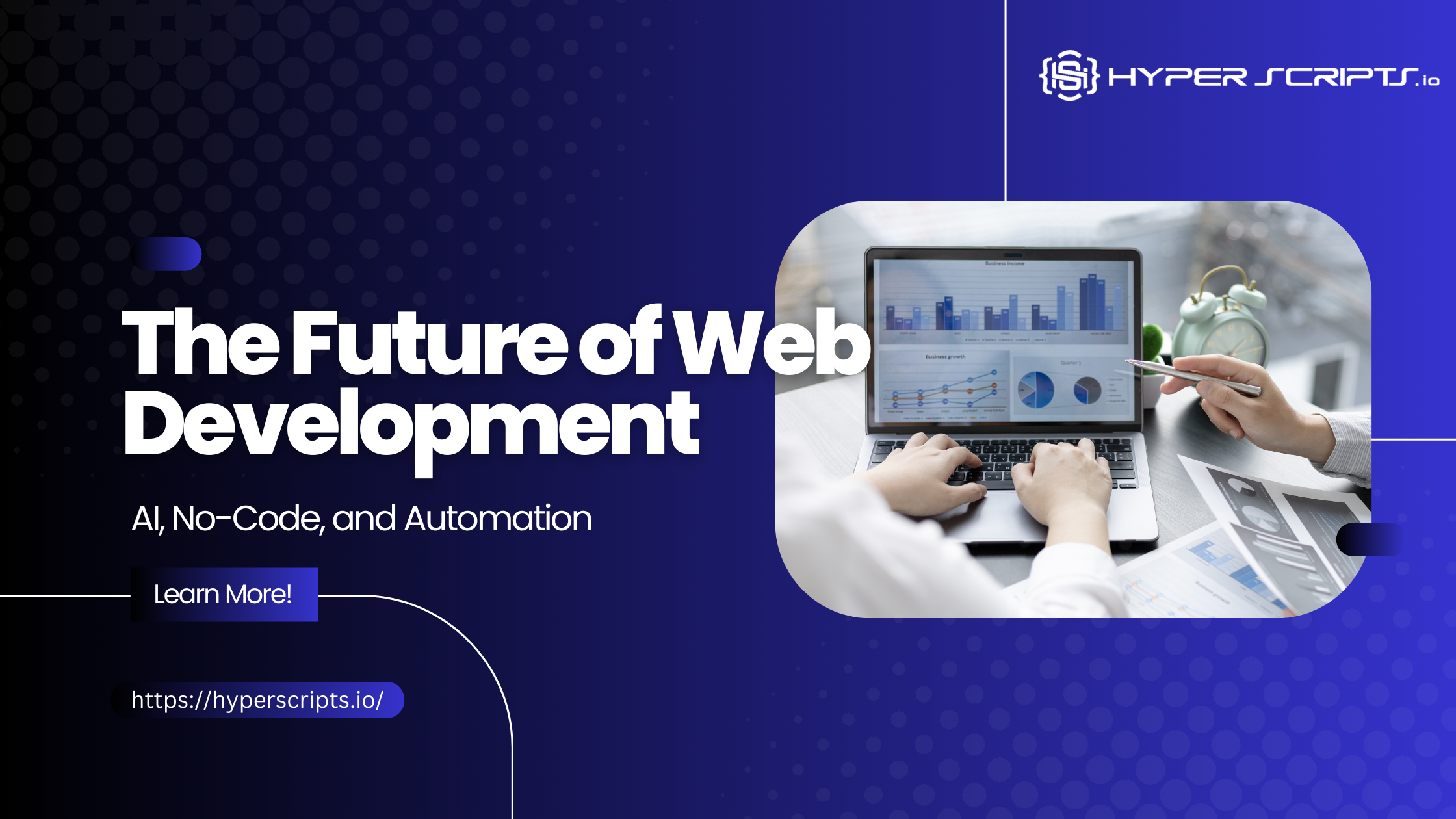The Future of Web Development: AI, No-Code, and Automation
Web development is undergoing a transformative shift driven by AI, no-code platforms, and automation. As businesses and developers seek faster, more efficient ways to build digital experiences, these technologies are reshaping how websites and applications are created, maintained, and optimized. This article explores how AI, no-code, and automation are defining the future of web development.
1. The Rise of AI in Web Development
AI-Driven Development Tools
Artificial Intelligence is enhancing web development in various ways:
- AI-Powered Code Generation: Tools like GitHub Copilot and ChatGPT assist developers by generating code snippets, reducing development time.
- Automated Testing & Debugging: AI-based testing frameworks, such as Selenium and Testim, streamline the debugging process.
- Personalization & User Experience: AI-driven chatbots, recommendation engines, and predictive analytics improve engagement and user retention.
AI’s Role in Performance Optimization
- SEO Enhancement: AI-based tools analyze search trends and optimize content for better rankings.
- Automated UI/UX Design: Platforms like Adobe Sensei leverage AI to recommend design improvements based on user behavior.
- Code Refactoring: AI suggests optimizations, reducing redundant code and improving efficiency.
2. No-Code and Low-Code Platforms: Democratizing Development
What Are No-Code & Low-Code Platforms?
No-code platforms allow users to build websites and applications without programming knowledge, while low-code platforms require minimal coding. Popular examples include:
- Webflow and Wix (No-Code Website Builders)
- Bubble (No-Code App Development)
- OutSystems and Mendix (Low-Code Enterprise Solutions)
Benefits of No-Code & Low-Code Development
- Speed: Businesses can launch products quickly without extensive development cycles.
- Cost-Effectiveness: Reduces reliance on expensive developers and resources.
- Accessibility: Empowers non-technical users to build and manage digital assets.
3. Automation in Web Development
Automating Repetitive Tasks
Automation is enhancing efficiency in various aspects of web development:
- Continuous Integration & Deployment (CI/CD): Tools like Jenkins, GitHub Actions, and CircleCI automate software deployment and testing.
- Content Updates & Management: AI-powered CMS platforms automatically optimize and distribute content.
- Security & Compliance: Automated security scanning tools, such as Snyk and Dependabot, help prevent vulnerabilities.
AI-Driven Chatbots & Virtual Assistants
- Customer Support Automation: AI chatbots provide 24/7 customer support, improving user experience.
- Voice Search & Conversational UI: AI-driven voice search optimizations are changing the way users interact with websites.
4. The Future: What’s Next?
- AI-Generated Websites: Fully AI-powered web development platforms will become more sophisticated.
- Hyper-Personalization: Advanced AI will tailor content and design for individual users.
- Blockchain Integration: Decentralized applications (dApps) and Web3 technologies will reshape online security and transactions.
- Edge Computing & Progressive Web Apps (PWAs): Enhancing speed and reliability for global users.
Embracing the Future of Web Development
AI, no-code platforms, and automation are revolutionizing the web development landscape. Businesses and developers who adapt to these advancements will stay ahead in the digital space. Whether you’re a startup looking for quick deployment solutions or an enterprise optimizing for efficiency, embracing these technologies will be key to success.
Are you ready to leverage AI and automation in your web development process? Let’s discuss how these innovations can drive your business forward!


